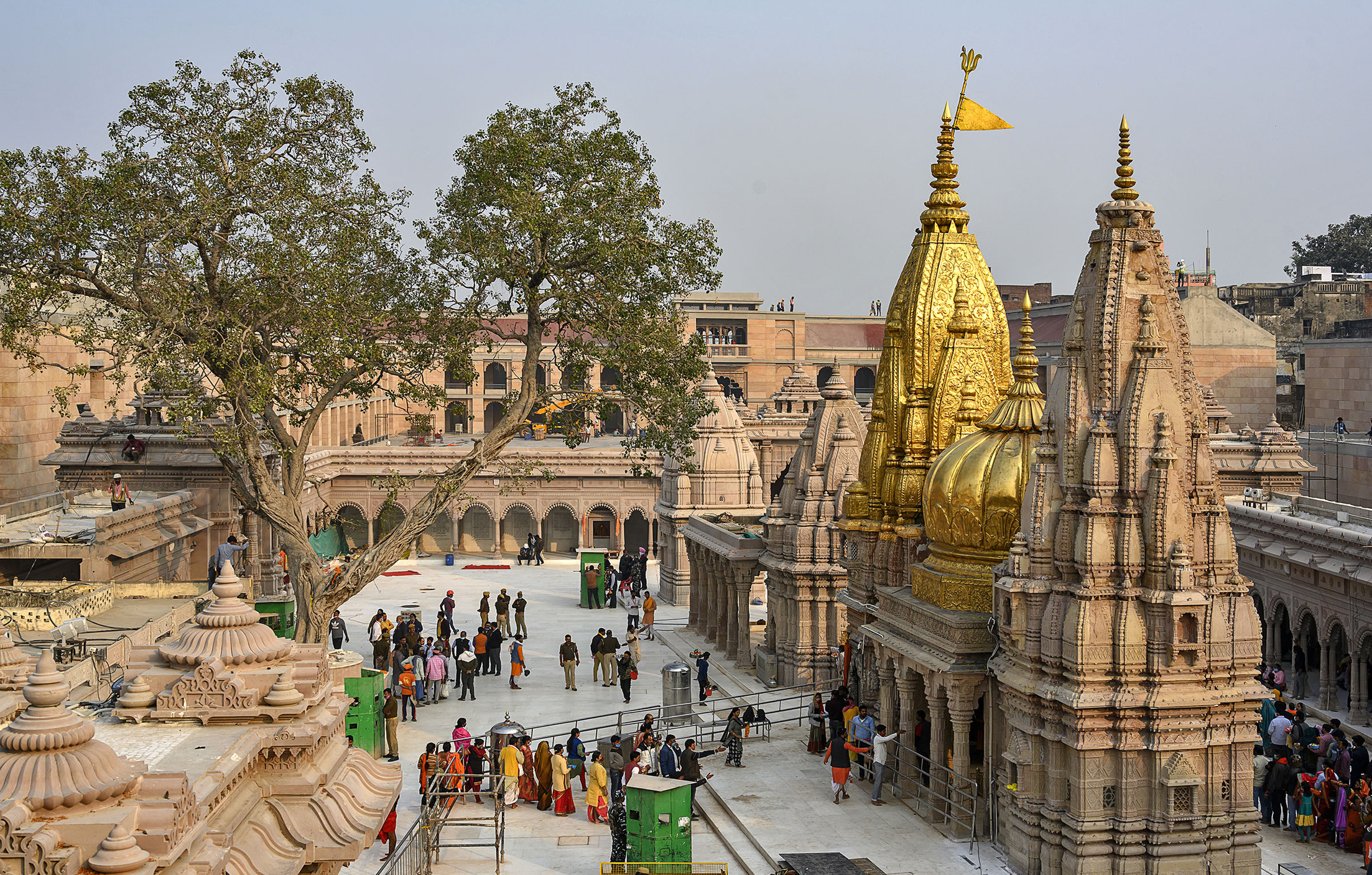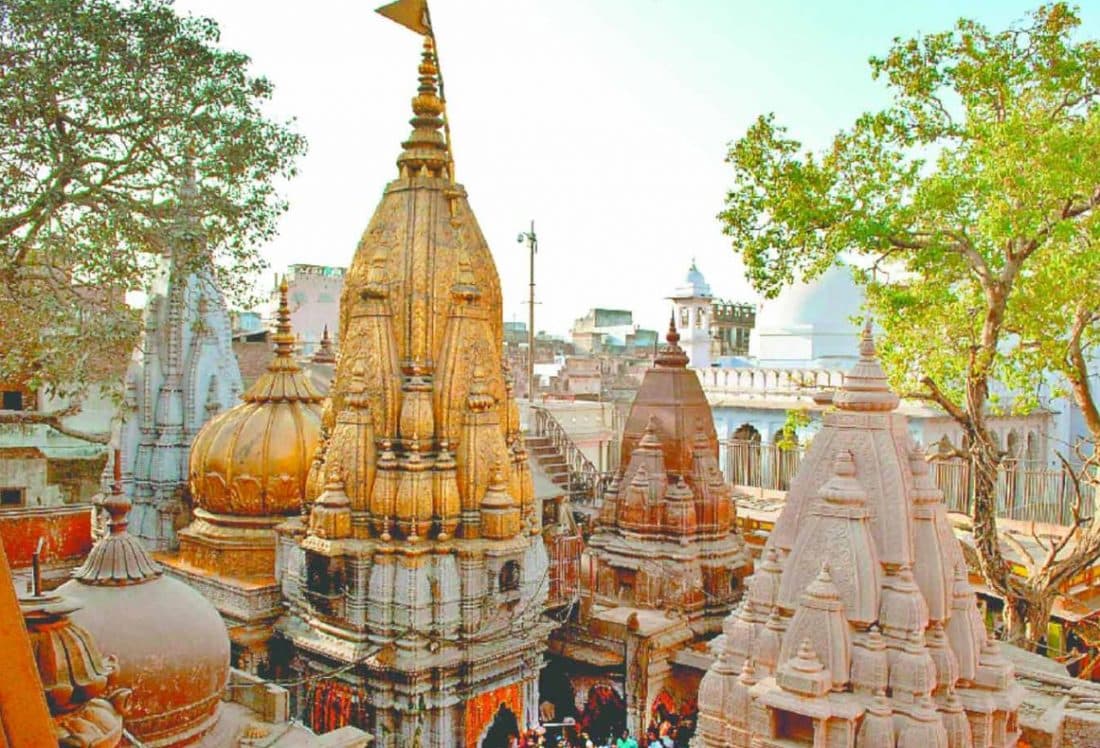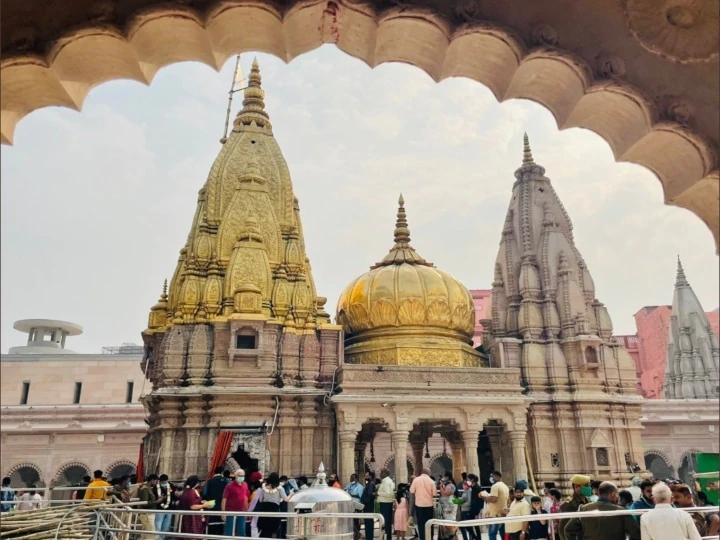The Kashi Vishwanath Temple, located in Varanasi, Uttar Pradesh, is one of the holiest and most revered temples in India. If you’re planning a visit to this sacred site, there are several accommodation options available in and around Varanasi:
-
Temple Trust Guest Houses: The temple trust manages several guest houses providing accommodations for pilgrims and visitors. These guest houses offer a convenient stay close to the temple premises.
-
Hotels in the vicinity: There are various hotels and lodges in Varanasi that cater to different budgets and preferences. Some popular ones include Hotel Temple on Ganges, Hotel Surya, BrijRama Palace – a heritage hotel, and Hotel Ganges View.
-
Guesthouses and Homestays: Varanasi offers numerous guesthouses and homestays for a more local and immersive experience. Places like Ganpati Guest House, Shiva Kashi Guest House, and many others are known for their comfortable stay and proximity to the temple.
-
Luxury Hotels: For those seeking more luxurious accommodations, there are options like Taj Nadesar Palace and The Gateway Hotel Ganges offering upscale facilities and a premium stay experience.
During peak seasons or festivals, it’s recommended to book accommodations in advance, especially in Varanasi due to the high influx of pilgrims and tourists. Staying closer to the Kashi Vishwanath Temple allows for easier access and a more immersive experience of the spiritual and cultural ambiance of Varanasi.
Table of Content
History
The Kashi Vishwanath Temple, located in Varanasi (also known as Kashi), Uttar Pradesh, India, is one of the most revered and ancient temples dedicated to Lord Shiva. The temple has a rich history that spans several centuries:
Ancient Origins: The temple’s history dates back to ancient times. Varanasi itself is one of the oldest continuously inhabited cities in the world, and the Kashi Vishwanath Temple is at the heart of its spiritual and cultural significance.
Original Temple: The original temple was believed to have been constructed several times over the course of history. The earliest structure is thought to have been built around the 11th century by a devotee named Ahilyabai Holkar, the queen of the Malwa kingdom. This temple was later destroyed by the Mughal Emperor Aurangzeb in the 17th century.
Reconstruction: The current structure of the Kashi Vishwanath Temple was reconstructed in the 18th century by Maharani Ahilyabai Holkar of Indore, under the patronage of various rulers and devotees. This temple, which stands today, is a result of their efforts and devotion.
Spiritual Significance: The temple is revered as one of the holiest sites for Hindus. It is believed that a visit to the Kashi Vishwanath Temple and a holy dip in the Ganges River, which flows nearby, absolves devotees of their sins and helps them attain salvation (moksha).
Architecture: The temple boasts an impressive design with its spire, walls, and domes adorned with intricate carvings and sculptures. The sanctum sanctorum houses the main deity, Lord Shiva, also known as Vishwanath or Vishweshwara (the ruler of the universe).
Religious Practices: The temple sees a significant influx of pilgrims and devotees throughout the year, especially during festivals and religious occasions. Daily rituals, pujas, and aartis (devotional offerings and prayers) are performed with great devotion.
The Kashi Vishwanath Temple is not just a place of worship but a symbol of spiritual awakening and cultural heritage, drawing devotees and tourists from around the world to witness its architectural beauty and experience its divine aura.
Yearly Festivals
The Kashi Vishwanath Temple, located in Varanasi (Kashi), Uttar Pradesh, India, celebrates several festivals throughout the year. Some of the prominent yearly festivals observed at the Kashi Vishwanath Temple include:
-
Mahashivratri: Celebrated in honor of Lord Shiva, this festival usually falls in the month of February or March. It is a major festival at the Kashi Vishwanath Temple, attracting a large number of devotees who perform special rituals and offer prayers to Lord Shiva.
-
Shravan Month (Sawan): The entire month of Shravan (July-August) is devoted to Lord Shiva. Devotees undertake the Kanwar Yatra, carrying holy water from the Ganges to offer at the Kashi Vishwanath Temple.
-
Navratri: The nine-day festival dedicated to Goddess Durga is also celebrated at the temple, with special prayers and festivities.
-
Kartik Purnima: Celebrated in the month of Kartik (October-November), devotees take a dip in the holy Ganges and visit the Kashi Vishwanath Temple to seek blessings.
-
Deepavali (Diwali): The festival of lights is celebrated with great enthusiasm at the Kashi Vishwanath Temple, with lamps, decorations, and special prayers.
-
Makar Sankranti: This festival marks the transition of the sun into the zodiac sign of Capricorn and is celebrated in January. Devotees offer prayers and take holy dips in the Ganges.
These festivals witness a significant influx of devotees and special rituals, prayers, and celebrations at the Kashi Vishwanath Temple. The temple holds immense spiritual and cultural significance, making these festivals vibrant and auspicious occasions for devotees.
Daily Pujas
As of my last knowledge update in January 2023, the daily rituals and pujas at the Kashi Vishwanath Temple in Varanasi, India, were conducted as per a customary schedule. Please note that temple schedules can be subject to change, so it’s a good idea to verify with the temple administration or a reliable source for the most current information. Here is a general outline of the daily pujas that used to take place at the Kashi Vishwanath Temple:
-
Mangala Aarti (Morning Aarti): This ritual, also known as the Mangala Aarti, takes place early in the morning, usually around 3:00 AM. It is the first aarti of the day, offering prayers to Lord Shiva.
-
Bhog Aarti: The mid-day Bhog Aarti is performed around noon and includes offering food (bhog) to the deity.
-
Sandhya Aarti (Evening Aarti): The evening aarti, Sandhya Aarti, takes place at sunset, around 7:00 PM, and involves prayers, music, and rituals.
-
Shringar Aarti (Night Aarti): The final aarti, Shringar Aarti, is conducted later in the evening, around 10:30 PM, before the deity is adorned for the night.
Additionally, there might be other rituals, darshans, and ceremonies performed throughout the day. Pilgrims and visitors can participate in these rituals or witness them, but specific timings might vary based on the season or special occasions.
It’s recommended to check the official Kashi Vishwanath Temple website or contact the temple authorities for the most accurate and updated information regarding the daily schedule of pujas and aartis. Various online resources or travel guides might also provide details about the daily rituals at the temple.
How To Reach
The Kashi Vishwanath Temple, located in Varanasi, India, is a revered Hindu temple and one of the holiest shrines dedicated to Lord Shiva. Varanasi is well-connected by various means of transportation, making it relatively accessible for visitors. Here’s how you can reach the Kashi Vishwanath Temple:
By Air:
Varanasi Airport (Lal Bahadur Shastri Airport): The nearest airport to Varanasi is well-connected to major cities in India. From the airport, you can hire a taxi or use app-based cab services to reach the Kashi Vishwanath Temple, which is around 20-30 minutes away by road.
By Train:
Varanasi Junction (BSB): Varanasi Junction is a major railway station in the region and is well-connected to various parts of the country. From the station, you can take a taxi, auto-rickshaw, or cycle rickshaw to reach the Kashi Vishwanath Temple. The temple is approximately 15-20 minutes away by road from the station.
By Road:
Bus: Varanasi is connected by road to nearby cities. Various government and private buses operate to and from Varanasi. Once in the city, you can hire a taxi or use local transport to reach the temple.
Private Vehicles/Taxis: Varanasi can be accessed via private vehicles or taxis. The temple is located in the heart of the city, and there are parking facilities available nearby.
Local Transport:
Auto-rickshaws and Cycle Rickshaws: These are common modes of transportation within the city and can be used to get around, including reaching the Kashi Vishwanath Temple.
Note:
The temple is located in the heart of Varanasi, and the roads leading to the temple are narrow. It might be more convenient to cover the last part of the journey on foot or by using cycle rickshaws from nearby accessible points.
Keep in mind that Varanasi is a city with narrow lanes and heavy pedestrian traffic, especially around the temple area. It’s advisable to plan your visit during less crowded hours for a more comfortable experience.
Where To Stay
The Kashi Vishwanath Temple in Varanasi, India, attracts a large number of devotees and tourists. There are various options for accommodation near the temple to suit different preferences and budgets:
-
Temple Guest Houses: The temple authorities operate guest houses or dharamshalas, providing basic accommodation for pilgrims. They are usually simple and economical, offering a convenient stay close to the temple.
-
Hotels and Lodges: There are numerous hotels, lodges, and guest houses around the temple area that cater to different budgets. Some of these include Hotel Tridev, Hotel Banaras, Hotel Alka, and more.
-
Assi Ghat and Dashashwamedh Ghat Area: Both these areas, while not right at the temple, are relatively close and offer a range of guest houses, hostels, and hotels. Staying here provides a serene atmosphere along the Ganges River.
-
Luxury Hotels: If you prefer more upscale accommodation, various luxury hotels are available in and around Varanasi. Some options include Taj Nadesar Palace, BrijRama Palace – A Heritage Hotel, and The Gateway Hotel Ganges, among others.
-
Homestays and Guesthouses: Varanasi also offers many homestays and guesthouses where you can experience local culture and hospitality.
Given the popularity of Kashi Vishwanath Temple and the spiritual significance of Varanasi, it’s recommended to book accommodation in advance, especially during festivals or peak seasons, to ensure a comfortable stay near the temple.




